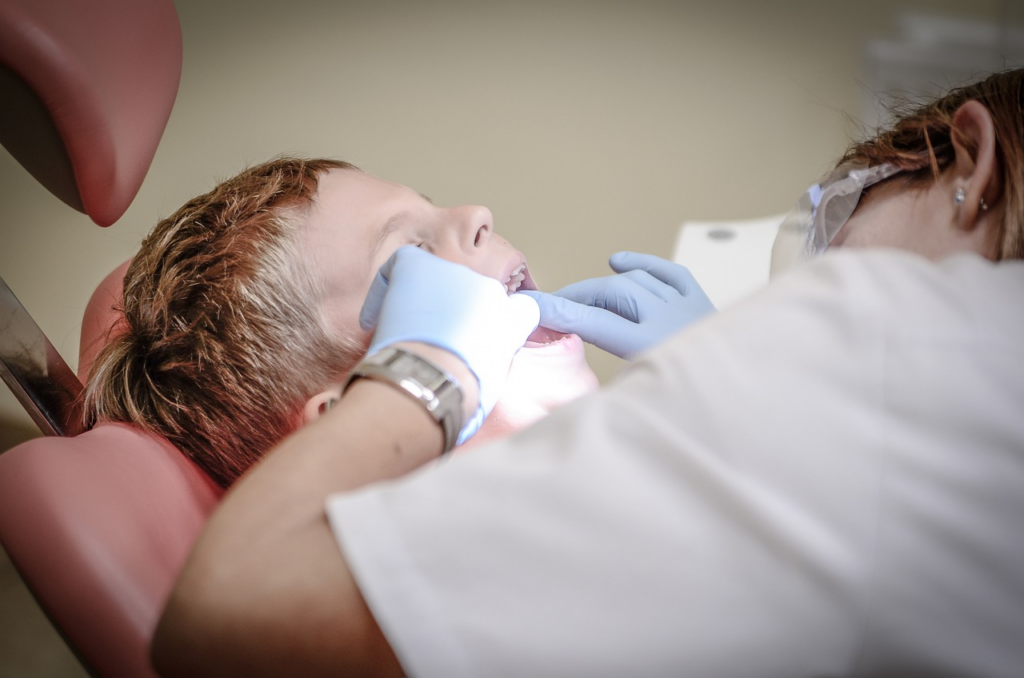
Maintaining your child’s oral health is more than just preventing cavities. Regular dental checkups play a crucial role in their overall health, well-being, and development. These visits ensure that issues are caught early, promoting good habits and preventing long-term problems. Here’s why regular dental checkups are vital for your child’s health.
Prevention of Cavities and Tooth Decay
Regular checkups allow the dentist to clean your child’s teeth thoroughly and spot any areas at risk for decay. Fluoride treatments and sealants are often applied during these visits, which protect the teeth and help prevent future cavities. When it comes to prevention, a pleasant dental experience can help your child develop a positive attitude towards oral health and make them more likely to maintain good dental habits throughout their life. Teaching your child proper oral hygiene at these appointments reinforces the importance of brushing and flossing.
Early Detection of Dental Issues
Routine dental checkups help catch potential problems before they worsen. Dentists can detect early signs of cavities, gum disease, misalignment, or developmental issues with your child’s teeth. The sooner these issues are identified, the easier and less expensive they are to treat. Addressing concerns early on can also prevent pain and discomfort in your child’s mouth.
Monitoring Oral Development
Children’s teeth are constantly changing. Regular dental visits allow the dentist to track the progress of your child’s teeth and ensure they are developing correctly. Monitoring the growth of their permanent teeth can help spot any alignment issues early, which may require braces or other orthodontic treatments. Catching these issues early can lead to more effective and less invasive treatments later on.
- Tracking the Growth of Baby Teeth: Baby teeth act as placeholders for permanent teeth, so it’s important to monitor their eruption and loss. A dentist will check that your child’s baby teeth are falling out in the right order and that the new permanent teeth are coming in properly. Delayed or early loss of baby teeth can impact how the adult teeth develop and may require intervention to avoid misalignment or other problems.
- Early Detection of Alignment Issues: Misaligned teeth, such as overcrowding or spacing issues, are often easier to address when caught early. Regular dental checkups allow the dentist to assess your child’s bite and jaw alignment, determining if orthodontic treatments are necessary. Early orthodontic intervention can prevent more severe dental problems later on and may reduce the need for extensive treatments like braces in the future.
- Monitoring Jaw Growth and Development: A dentist can monitor the growth of the jaw and how it interacts with your child’s teeth. Jaw development issues, such as overbite, underbite, or crossbite, can affect how your child’s teeth meet and can lead to difficulty with eating or speaking. Addressing jaw growth issues early can ensure a more comfortable and functional bite as your child matures.
- Ensuring Proper Spacing for Permanent Teeth: The spacing between teeth plays a critical role in allowing permanent teeth to grow straight. If baby teeth fall out too early or too late, it can cause crowding or gaps that affect how the permanent teeth emerge. Regular visits allow the dentist to monitor the space between your child’s teeth and intervene if necessary to ensure their adult teeth come in smoothly.
Identifying Habits that Could Affect Oral Health
Certain habits like thumb-sucking, nail-biting, or excessive use of pacifiers can negatively affect your child’s dental health. During checkups, dentists will assess if these habits are causing any damage to their teeth or jaw. The dentist can guide you on how to help your child break these habits before they lead to significant dental problems, ensuring healthier teeth in the future.
Education on Proper Oral Hygiene
Regular dental checkups aren’t just about treating existing issues – they’re also an opportunity to educate your child on the importance of oral hygiene. Dentists can provide personalized advice based on your child’s unique needs, such as recommending the right type of toothbrush or flossing technique. This is an essential step in creating a lifetime of good oral hygiene habits.
Building Positive Associations with Dental Care
When children attend regular dental checkups from an early age, they develop a positive attitude towards oral health. Regular visits help them become accustomed to the dental environment, reducing the likelihood of dental anxiety later in life. This familiarity ensures that they are more likely to seek out care when needed and maintain their dental health as they grow.
Regular dental checkups are an essential part of maintaining your child’s overall health. These visits not only prevent serious oral health issues but also teach your child the importance of good habits and oral care. By staying proactive and scheduling regular checkups, you are setting your child up for a lifetime of healthy teeth and gums.












